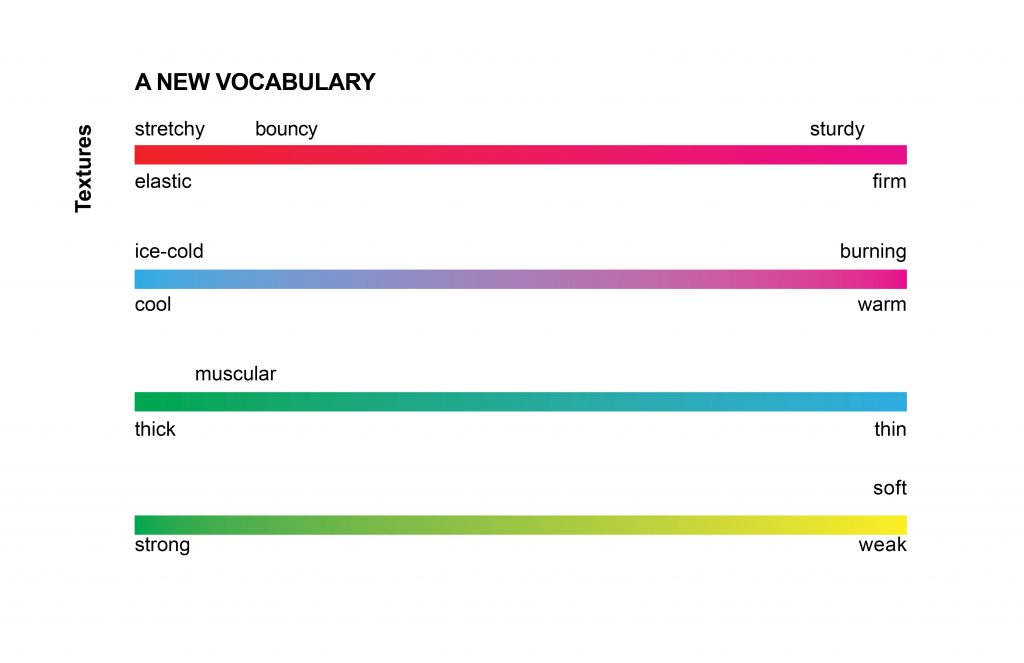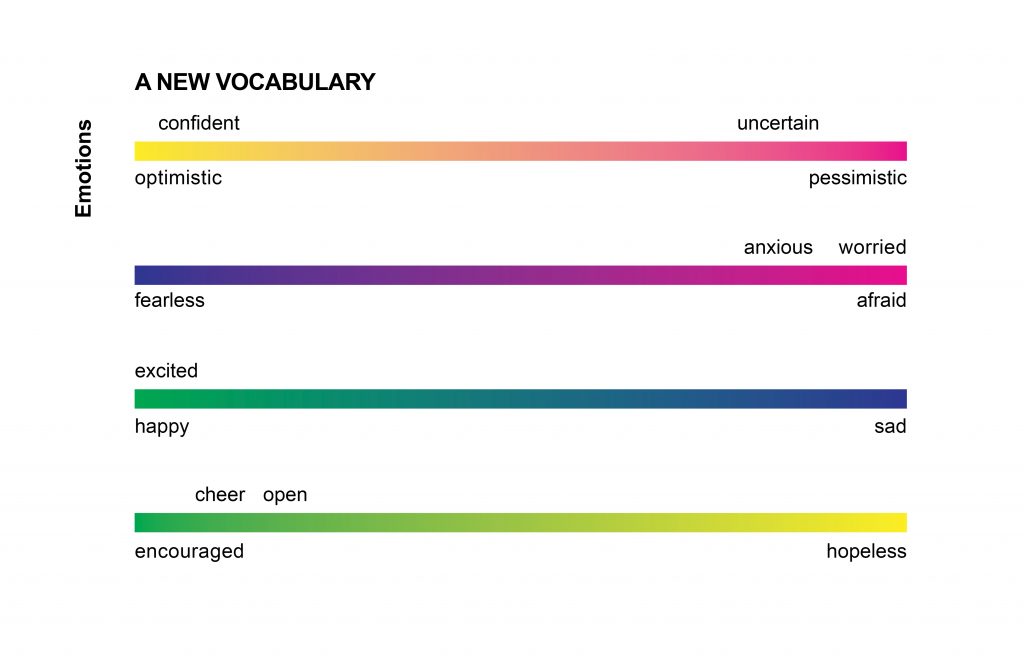Pre-Braille Implementation in Early Education by Jaime Hilditch
Considerations and Feedback
Jaime Hilditch
Considerations
I’ve found through research, that texture-descriptive words are not always accessible to those who are blind or have vision impairments; many terms reference sight, for example: earthy, close-grained or gradation. I’ve left you with 30 texture and emotive-accessible terms on “A New Vocabulary” spectrum (located below). It is meant for use after participating in one of the three activities. Record any terms that may have come up during listening, making and reflecting in a digital or physical notebook. Please use, and reference this spectrum, as a reminder to be more descriptive, and aware of your descriptor terms when speaking with those who have visual impairments.

Record any terms that arose during activity listening, making and reflecting.
Record in a notebook, on a loose piece of paper, or on notes in your phone and/or tablet.

Record any terms that arose during activity listening, making and reflecting.
Record in a notebook, on a loose piece of paper, or on notes in your phone and/or tablet.
Feedback
Please leave any questions, thoughts, and/or learning outcomes in the Google Doc, or reach out via email: jaimehilditch1@me.com. The Google Doc will act as an exhibition piece in itself, as well as provide a direction for my further research and design. The Doc will allow us to gather as a community, observing and replying to others’ interpretations of the activities.
References
MIT Media Lab. (n.d.). Lifelong Kindergarten: Engaging People in Creative Learning Experiences. Retrieved June 08, 2020, from https://www.media.mit.edu/groups/lifelong-kindergarten/overview/
Ministry of Education. (2019). The Kindergarten Program 2016. Retrieved June 08, 2020, from https://www.ontario.ca/document/kindergarten-program-2016?_ga=2.197503080.658823332.1586109603881997968.1586109603
Paths to Literacy. (n.d.). Pre-Braille. Retrieved June 18, 2020, from https://www.pathstoliteracy.org/pre-braille
Professional Development and Research Institute on Blindness. (2004). Braille Activities for Children. Retrieved March 4, 2020, from http://www.pdrib.com/pages/brailactivities.php
Pruess, A. (2020, April 21). 25 Simple Mindfulness Activities Kids Will Actually Want to do. Retrieved July 19, 2020, from https://parentswithconfidence.com/25-mindfulness-practices-for-kids-who-cant-sit-still/
Tennessee Council of the Blind. (2008, December 29). Grade 1 and Grade 2 Braille. Retrieved April 10, 2020, from http://www.acb.org/tennessee/braille.html


Feedback/Errata